Question And Answer
Publications
Articles, publications, books, tools and multimedia features from the U.S. Institute of Peace provide the latest news, analysis, research findings, practitioner guides and reports, all related to the conflict zones and issues that are at the center of the Institute’s work to prevent and reduce violent conflict.
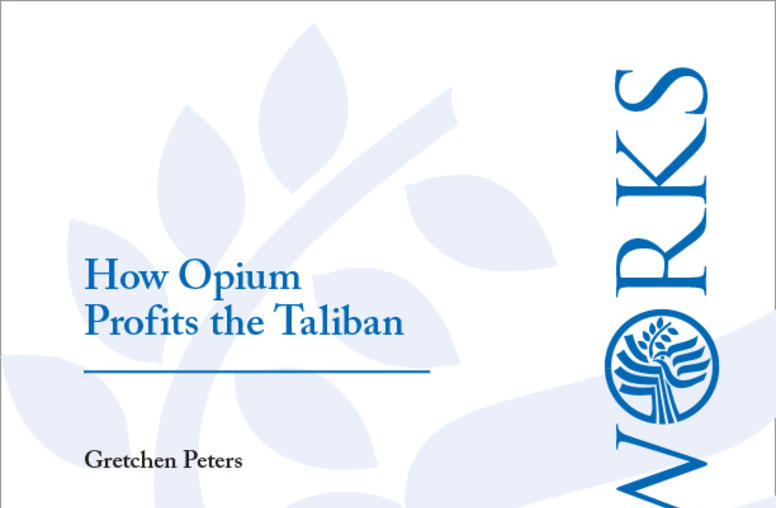
How Opium Profits the Taliban
In Afghanistan's poppy-rich south and southwest, a raging insurgency intersects a thriving opium trade. A new USIP report, How Opium Profits the Taliban, examines who are the main beneficiaries of the opium trade, how traffickers influence the Taliban insurgency as well as the politics of the region, and considers the extent to which narcotics are changing the nature of the insurgency itself.
USIP Addresses Refugee Crisis in Pakistan
USIP Jennings Randolph Senior Fellow Imtiaz Ali testified on July 29, 2009 before the Senate Foreign Relations Subcommittee on Near Eastern and South and Central Asian Affairs about "Responding to the Internally Displaced Persons (IDP) Crisis in Pakistan.
Truth Commission: Solomon Islands
Truth Commission: Truth and Reconciliation Commission Duration: April 29, 2009 (date of inauguration); January 15, 2010 (start of operations) – 2011 (expected). Extensions by the Prime Minister are possible, but limited to one year. Charter: Truth and Reconciliation Commission Act 2008 (No. 5 of 2008) Commissioners: 5 Report: Not yet issued
Special Prosecutor's Office: Ethiopia
Commission of Inquiry: The Special Prosecution Process by the Office of the Special Prosecutor Duration: 1993 – 2007(?) Charter: Proclamation No. 22/1992 Commissioners: more than 400 staff at peak Report: [Public report on first year of activities]
Truth Commission: Panama
Truth Commission: Panama Truth Commission (Comisión de la Verdad de Panamá) Duration: 2001 - 2004 Charter: Executive Decree No. 2, January 18, 2001 Commissioners: 7 Report: Public report
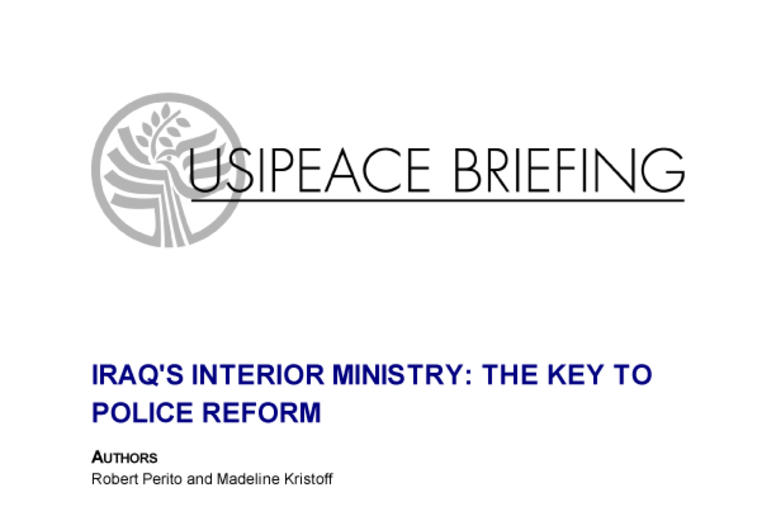
Iraq's Interior Ministry
As part of a push to bolster security in Iraq, the U.S. government declared 2006 the “Year of the Police” and focused on building the institutional capacity of the Ministry of the Interior, which supervises and trains Iraq’s police force. However, even by 2007, numerous reports described Iraq’s Ministry of the Interior as crippled by corruption and sectarianism, and furthermore represented a major obstacle to developing an effective police force in the country.
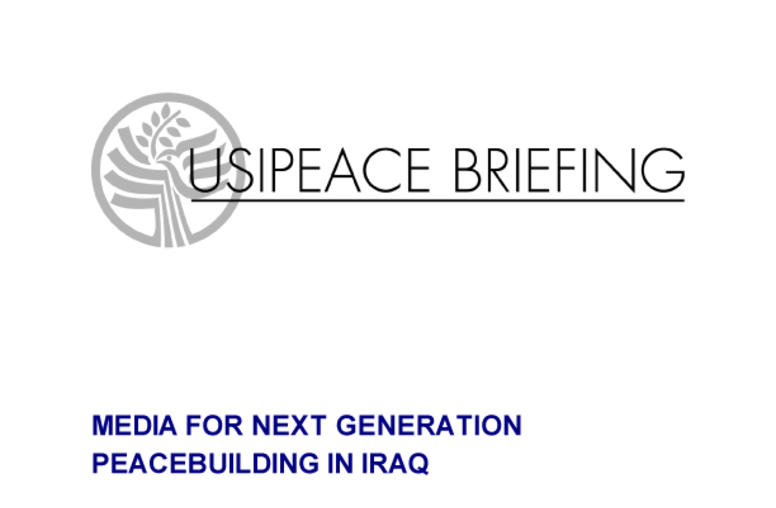
Media for Next Generation Peacebuilding in Iraq
In order to address some of the challenges facing youth in Iraq, USIP and its Iraqi partners created a multimedia program that provides Iraqi teenagers with tools that can help them grow into independent, empowered citizens within a complex society. In April 2009, USIP’s Center of Innovation for Media, Conflict and Peacebuilding organized an expert working group in Erbil, Iraq to discuss various peace media programming relevant for Iraqi youths. This report offers an introduction to USIP’s yo...
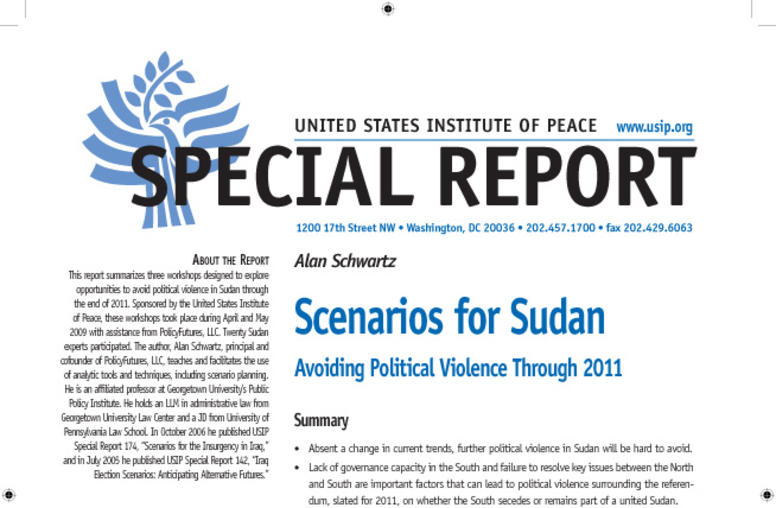
Scenarios for Sudan: Avoiding Political Violence Through 2011
More political violence will be hard to avoid in Sudan, barring a quick change in current trends, according to a new USIP report. Much of the outcome hinges on the handling of issues that involve the 2011 referendum on whether the South secedes from Sudan.
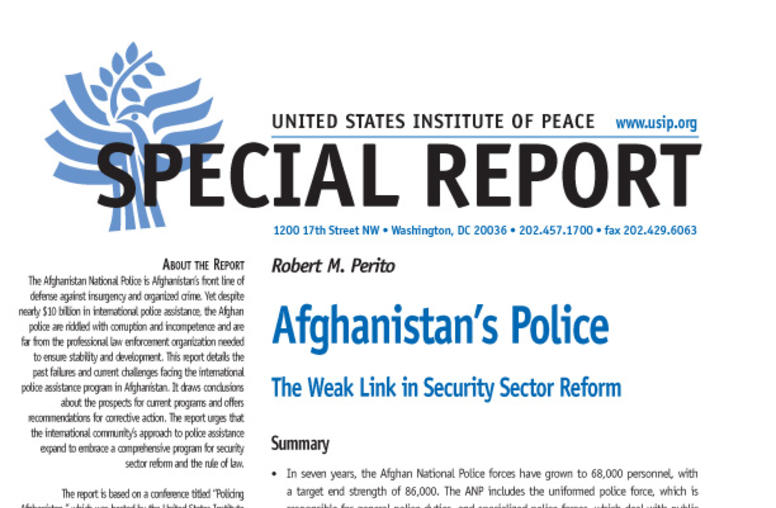
Afghanistan's Police
Summary In seven years, the Afghan National Police forces have grown to 68,000 personnel, with a target end strength of 86,000. The ANP includes the uniformed police force, which is responsible for general police duties, and specialized police forces, which deal with public order, counternarcotics, terrorism, and border control. Despite the impressive growth in numbers, the expenditure of $10 billion in international police assistance, and the involvement of the United States, the Eur...
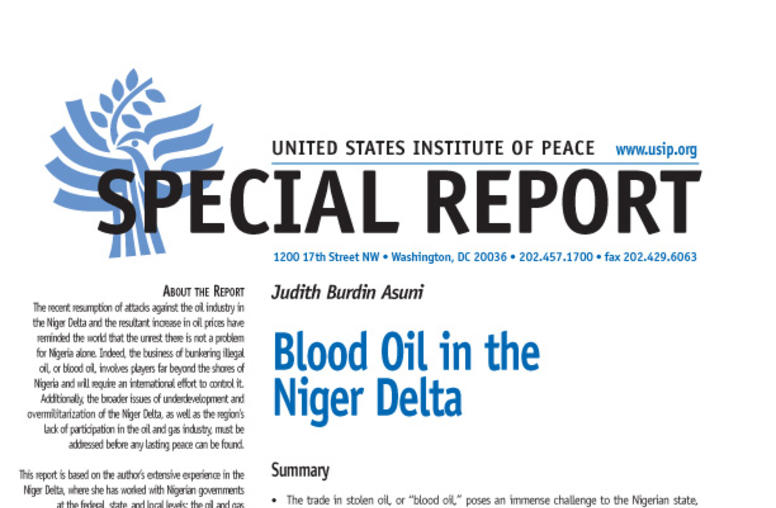
Blood Oil in the Niger Delta
The trade of stolen oil, or “blood oil,” in Nigeria is fueling a long-running insurgency in the resource-rich Niger Delta region that has claimed many lives. Oil “bunkering” – or theft – has fomented the armed conflict in the region, providing militant groups with funds to purchase weapons, and has increased instability in oil prices on world energy markets. Nigerian President Umaru Yar’Adua in July 2008 asked the Group of Eight nations for help in dealing with the problem, but no concrete ac...